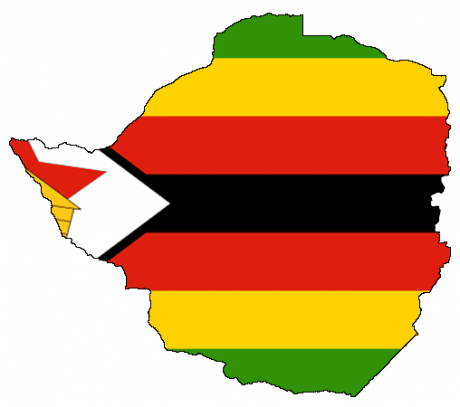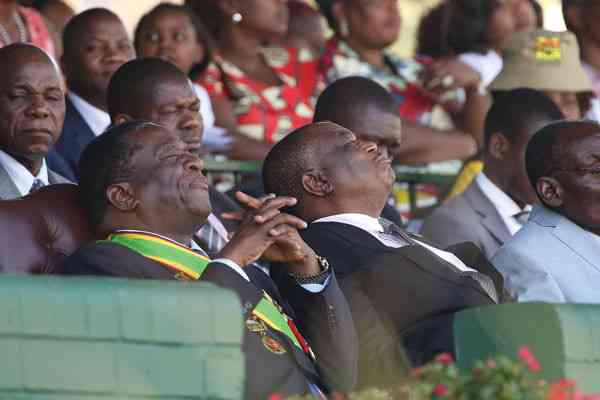
BY ZENZO MOYO AND MBUSO MOYO
Critical analyses of Zimbabwe’s political and economic meltdown are innumerable, yet all of them skirt the implications of the meltdown on our culture. This cautions us against the dangers of giving a “single story” on complex issues that novelist Chimamanda Ngozi Adiche ably articulates in her book The Thing Around Your Neck. Adiche cautions against interpreting people’s actions and their life through a single lens writing that deprives us of the often textured and complex lives that people lead. Chronicles of Zimbabwe’s political and economic crises tend to peripheralise the overlapping nature of our lives. Such analyses scantily interrogate the umbilical connections and disconnections that define those who remain in Zimbabwe and the diasporised communities. Indeed, these connections and disconnections are multiple, but deaths and births epitomise them perfectly, and hence their prominence in the following paragraphs.
This article has been inspired by our everyday interactions with Zimbabweans in the diaspora. These decade-long interactions engendered Socratic feelings that have recently been triggered by the passing on, or dying in foreign lands, of Zimbabweans that we were close to, as well as births of many children to Zimbabwean parents in the diaspora. Thus, this piece should be seen as a cultural protest against a system that, on a daily basis, is devouring its own citizens.
Many Zimbabweans have died in the diaspora, and buried there, regrettably in the absence of their close relatives who could either not afford the travelling costs, or have simply been denied passports and visas to travel to those countries to attend burials. Engaging with this reality necessitates a confrontation with an unavoidable question – what will happen to what we have, for the longest of time, considered as central to our culture as Zimbabweans – the burial and birth rituals that we inherited from our forebears.
Culture by its very nature is a product of history, just as history itself is not only a repository of culture, but also a record of that culture. As part of our culture, and as recorded in our history, Zimbabweans have always had established norms and values regarding deaths and burials, births and initiations. For example, in each family, there would always be that revered elder to lead the burial procession. For some reason, the choice of who this person was would always be an organic process that required no meeting. In the same vein, after every birth, certain procedures were to be followed to inter the new-born’s umbilical cord. At least this was the case before Zimbabwean citizens became scattered throughout the world, not by choice, but forced by circumstances that are beyond their control. Least of these being the violence, overt or subtle, perpetrated on them by the political system in the country.
Inevitably, this violence has resulted in Zimbabwean ‘diasporans’ living unevenly in foreign lands – some working and leading successful lives, while others struggling every day to make ends meet. What seems to be the common denominator between these two disparate groups is alienation from their relatives and country, as well as the disconnection from the roots of their culture. Of course, this alienation differs depending on the country where each migrant lands at, as well as the magnitude of the Zimbabwean population displaced to that specific country or region.
Cultural effects of being buried away from home are immeasurable. This is epitomised by the imaginations that occupy the minds of the deceased’s relatives: “Had we been around, we would have helped in risk assessment and advice for early health seeking behaviour”, to “We wonder what message s/he would have liked to relay about or to his children/parents before he died”. These sorrowful words, beside being lauded with regret, are in themselves a summation of what a dignified death would have entailed.
Interment of the dead in foreign lands is a function of the prohibitive costs of transporting the remains of the dead back to Zimbabwe. Costs range between R20,000 and R30,000 to transport a deceased from Johannesburg, in South Africa to Bulawayo. It costs over US$15,000 to do the same from overseas countries, even when the body is disrespectfully handled as cargo. This is not all. Because of these prohibitive costs, many Africans in the diaspora resort to cremation as an alternative, which is not common practice in our Zimbabwean culture.
- Chamisa under fire over US$120K donation
- Mavhunga puts DeMbare into Chibuku quarterfinals
- Pension funds bet on Cabora Bassa oilfields
- Councils defy govt fire tender directive
Keep Reading
There is no doubt that the practice of cremation or burying people away from their ancestral homes has existential problems for future generations, especially close relatives. It is part of our culture to visit the graves of our loved ones at least once a year. The benefits of doing so, or the harm of not doing the same may be intangible, not apparent in the immediate. However, the truth is that the effects of disrespecting our culture will in the future come to haunt us as a nation.
These complex issues are also immanent in births. Millions of children have been born away from home. Should we really call these children Zimbabweans? Of course, they remain so by descent. But how can they be reconnected with their culture, their traditions and their true identity – if all they know are foreign traditions that they have been exposed to.
The two of us are part of that generation that learnt humanism from society. What we know about our culture was acquired from the villages, the townships, and the schools we attended. The current history that our children learn in their schools is no repository of our culture. The teachers who impart ‘knowledge’ to them are foreign to our culture. How can these children in turn be custodians of our culture for the benefit of posterity?
Social anthropologists and sociologists have chronicled the experiences of children born in the diaspora, focusing on their encounters with citizens of the host country. Homi Bhabha, for example, speaks of the “Gathering of exiles and émigrés and refugees; gathering on the edge of ‘foreign’ cultures; gathering at the frontiers; gathering in the ghettoes or cafes of city centres”. What Bhabha articulates in these words bespeaks of the lived experiences of many children born on the margins of different cultures. Our children are now mired in an identity confusion of immense proportions. They do not belong where they were born. They also have no connection with the land of their forebears. How can they be at peace if they cannot tell who they are?
Most of them have lost all trace of their mother language. And we all know that language is what defines our culture. Because these children are born on the margins, they do not get assimilated, and they are often otherised. To avoid this, some children born to Nguni speaking parents in South Africa for example, will always attempt to invert “otherisation” by reconstituting themselves as AmaZulu. This strategy is simultaneously an attempt at self-inclusion/self-insertion as it is a strategy to circumvent the stigma of being labelled as foreigners.
There is yet another disconcerting dynamic for children born in the diaspora when they confront cultures of their parent. Like the inevitable boundaries of identity and belonging foreign children experience in the diaspora, similar boundaries replicate themselves when such children visit their parents’ native land. Because of their socially acquired language or accent, these children are often mocked for sounding different. This becomes double alienation, and adds another layer of dislocation, which in turn exacerbates their identity crisis.
These are important issues that we should interrogate for the Zimbabwean story to be complete. Every Zimbabwean in the diaspora harbours a hope of returning to Zimbabwe one day. This might still happen.
Suppose for one moment that we manage to fix our country’s problems within the coming 10 years, and all those in the diaspora decide to return to their motherland, as they should, what will happen to our siblings, children, parents and spouses who have been buried there? How will we, and the deceased’s children access their gravesites every year to lay wreaths when they are buried across the world? How will the grandchildren and great grandchildren reconnect with their ancestors whose resting place they do not know? How will our children born and raised in the midst of foreign cultures connect and reconnect with the realities of their country? All these may be vexing questions, but they still remain in the imaginary.
However, what is real for now is to direct the following two questions to politicians of all hues who have deliberately or otherwise, made it their preoccupation to hound Zimbabweans out of their motherland: For how long will you as politicians continue to self-aggrandise when our future, our culture, our humanity is besmirched? What have you done as politicians and as leaders to ensure that our culture and identity are preserved for the benefit of posterity?
1. Dr Zenzo Moyo. Dr Zenzo Moyo is a Zimbabwean, who is a researcher at Mapungubwe Institute for Strategic Reflection (MISTRA), a research institute based in Johannesburg. Dr Moyo writes here in his personal capacity.
2. Dr Mbuso Moyo is a Zimbabwean, who is a Programme Manager at the Fredrich Ebert Foundation (EFS) in Johannesburg. Dr Moyo writes here in his personal capacity.










